
Charlie Sheen’s tumultuous past is well-documented, a whirlwind of public meltdowns and personal struggles that ultimately led to his dramatic exit from the hit CBS sitcom “Two and a Half Men” in 2011. For years, the aftermath cast a long shadow, not just over Sheen’s career, but also significantly impacting those closest to him on the show, particularly his costar Jon Cryer. Now, more than a decade later, with eight years of sobriety under his belt, Sheen is opening up, reflecting on his past, and making genuine efforts to mend fractured relationships.
The air around Hollywood’s most infamous feuds often feels thick with unresolved tension, but a new chapter is unfolding for Charlie Sheen. As he prepares to release his memoir, “The Book of Sheen,” and a candid Netflix documentary, “aka Charlie Sheen,” the actor is engaging in a profound period of self-reflection. Central to this introspection is his acknowledgement of the pain he caused Jon Cryer, a man who found himself “in the line of fire” during Sheen’s public unraveling, and whose personal account forms a vital part of the upcoming documentary.
This isn’t just a story about Hollywood drama; it’s a deeply human narrative about regret, accountability, and the arduous path to redemption. Sheen’s recent revelations offer an intimate glimpse into the profound personal changes he has undergone, making it clear that his understanding of his past actions has evolved significantly. His attempts to reach out to Cryer, driven by genuine remorse and appreciation for his former co-star’s perspective, mark a pivotal moment in this ongoing saga.

1. **Charlie Sheen’s Public Apology to Jon Cryer**Charlie Sheen has publicly acknowledged the pain he inflicted upon his former “Two and a Half Men” co-star, Jon Cryer, expressing deep regret for the decade-long fallout. Shared in a recent People interview, this admission marks a pivotal moment in Sheen’s journey of accountability. His candid reflections signal a profound transformation, now driven by a desire to mend fractured ties and confront his tumultuous past with newfound clarity.
Sheen’s impetus to reach out was directly spurred by Jon Cryer’s remarkably “honest and very compassionate” portrayal in the upcoming Netflix documentary, “aka Charlie Sheen.” Seeing Cryer’s perspective, Sheen felt compelled to extend an olive branch, writing to him with genuine remorse. “When I saw everything that Jon spoke about, so honestly and very compassionately, I wrote to him and I said, ‘Hey, thank you for your contributions, and I’m sorry we didn’t connect personally,’” Sheen revealed, highlighting his appreciation for Cryer’s willingness to speak openly.
However, the path to reconciliation proved to have an unexpected, yet rather human, hurdle. Sheen recounted that his message went unanswered, leading him to believe he had an outdated contact. “I’m thinking I wrote to the wrong number,” he told People, emphasizing his belief that Cryer, known for being “super responsible,” would have otherwise responded. This seemingly small detail underscores the long period of estrangement, where even basic contact information had been lost between the once-close colleagues.
His public plea, “So if you’re reading this, Jon, DM me your new number!”, serves as both an earnest attempt to reconnect and a poignant demonstration of his earnest desire to bridge the communication gap. It’s more than just a request for a phone number; it’s an invitation to heal, a testament to how deeply Sheen values Cryer’s insights and hopes to personally express his gratitude and regret. This public gesture encapsulates the significant personal growth Sheen has undergone since his past struggles.
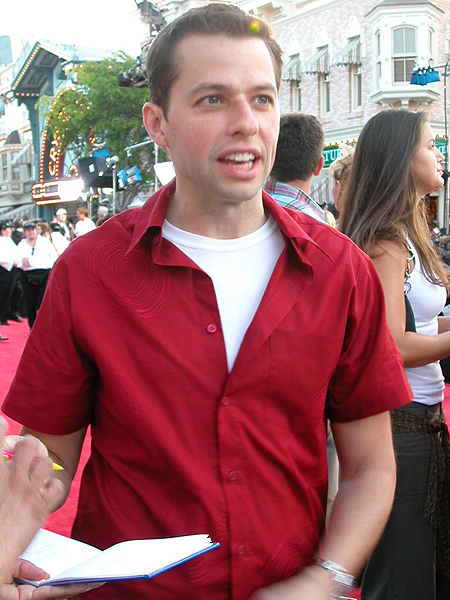
2. **A Decade of Silence: The Fallout Between Stars**For over ten years, a palpable silence has lingered between Charlie Sheen and Jon Cryer, once brothers on “Two and a Half Men.” This profound estrangement began in 2011, when Sheen’s public struggles with substance abuse culminated in his highly publicized firing from the beloved CBS sitcom. The abrupt end shattered a personal bond developed over eight successful years, leaving a void that persisted for far too long.
Jon Cryer himself shed light on this prolonged silence last year, revealing that he and Sheen had not spoken in years. He candidly admitted to still harboring bitterness over the fact that their hugely successful show “fell apart” directly because of Sheen’s well-documented drug and alcohol issues. This sentiment underscores the deep personal and professional wounds that were inflicted during that turbulent era, where a top-rated program, with Sheen as television’s highest-paid actor, crumbled under the weight of personal turmoil.
The public nature of Sheen’s recent apology and his plea for Cryer to “DM me your new number” is a clear attempt to overcome this long-standing communication barrier. It highlights the sincerity of his remorse and his desire to re-establish a personal connection after more than a decade of estrangement. This renewed effort signifies a powerful pivot from the past, as Sheen actively seeks to bridge the gap and rebuild a relationship once thought irrevocably broken.
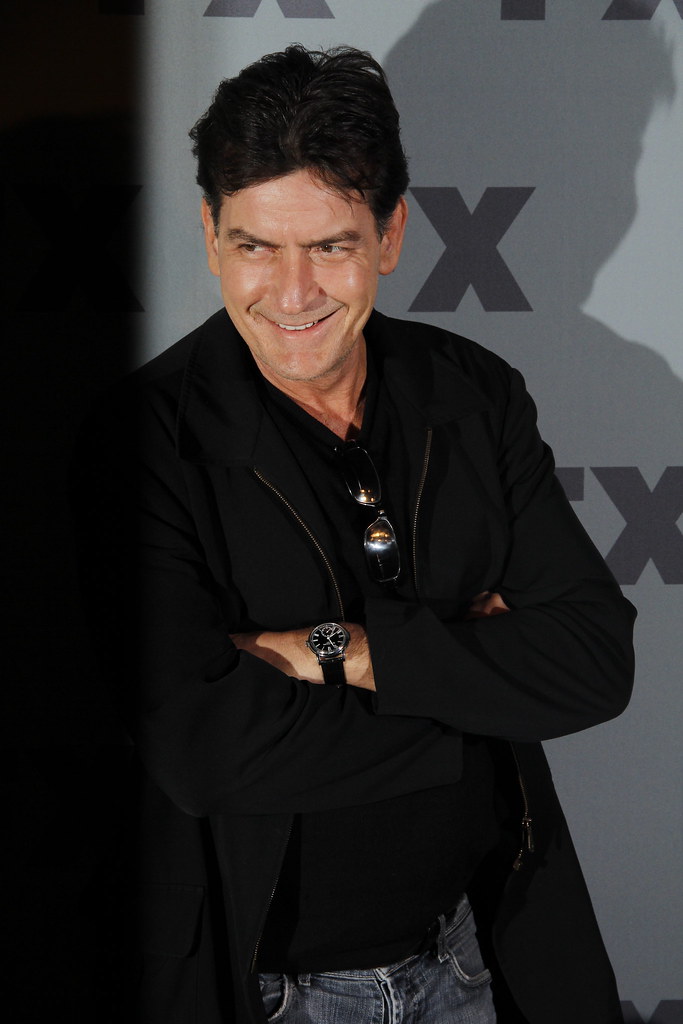
3. **Cryer’s Candid Documentary Insights**A pivotal moment in Charlie Sheen’s journey was his profound reaction to Jon Cryer’s remarkably honest contribution to the upcoming Netflix documentary, “aka Charlie Sheen.” In the film, Cryer openly shares his experience, detailing how Sheen’s widely publicized addiction struggles severely impacted him, both personally and professionally. This candid perspective, delivered with genuine “compassion” as Sheen noted, served as a powerful catalyst for Sheen’s own self-reflection and desire to make amends.
Sheen found Cryer’s insights to be “really cool to hear from,” a sentiment that speaks volumes about his appreciation for hearing the unvarnished truth from someone who was deeply affected. He admitted, “I can’t debate anything that he said” in the documentary, signifying acceptance of Cryer’s narrative. This acceptance is a hallmark of Sheen’s newfound sobriety and willingness to confront uncomfortable truths about his past actions.
The former highest-paid actor empathized deeply with Cryer’s ordeal, recognizing the immense pressure his co-star faced. “He was in the line of fire with all that stupid s**t going on, and it was affecting him and his family and his career and all that,” Sheen stated. This acknowledgment goes beyond a simple apology; it demonstrates a genuine understanding of the far-reaching consequences of his public meltdown, which disrupted not only Cryer’s professional life but also had personal ramifications for his family.
Cryer’s decision to speak about Sheen, despite admitting he was “nervous” and “fearing he might relapse,” deeply touched Sheen. He recognized this fear as “justified” given “the historical pattern” of his past behavior. Crucially, Sheen’s response was a resolute declaration of intent: “And I’m going to go out of my way to make him wrong every single day.” Cryer’s compassionate account in the documentary thus became an essential step towards opening a dialogue for healing.
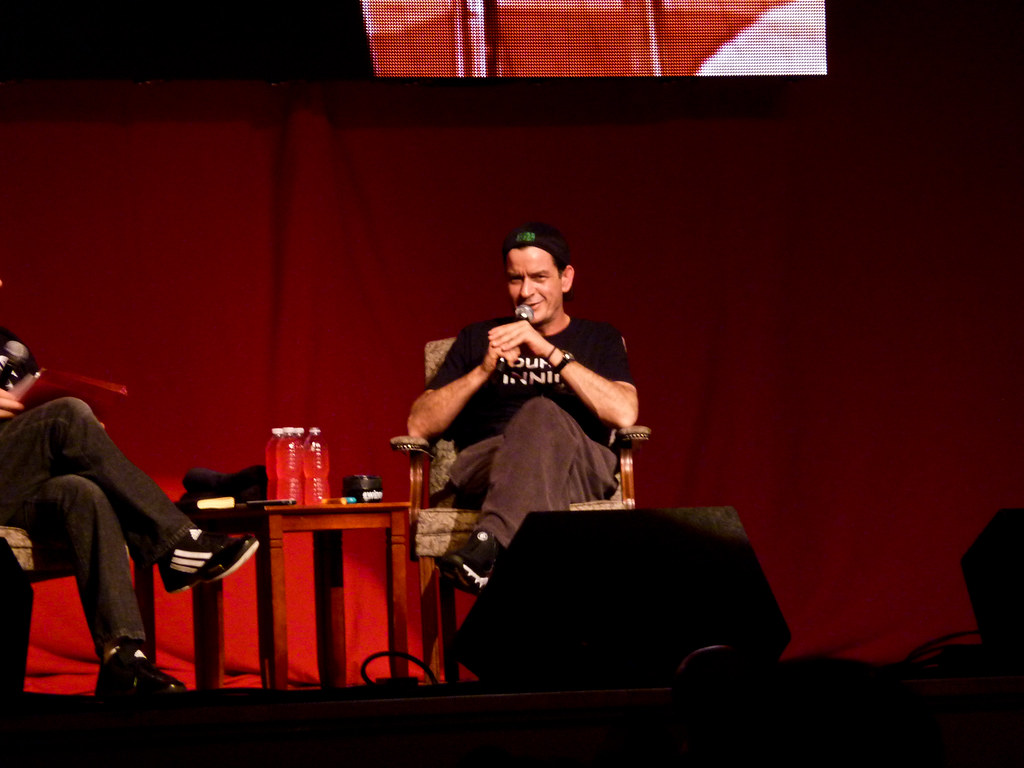
4. **Sheen’s Journey to Sobriety**Charlie Sheen’s current reflective state and desire for reconciliation lies in his remarkable eight years of sobriety. This milestone is not merely a personal victory but the catalyst for his transformed outlook on life and past actions. Having emerged from the haze of substance abuse that fueled his infamous public meltdown, Sheen is now able to confront his history with a clarity and honesty previously unimaginable, making genuine amends a tangible possibility.
His commitment to sobriety has fundamentally reshaped his perspective, allowing him to view the events that led to his “Two and a Half Men” firing with stark realism. Sheen openly reflected on the “different life” he might have led, acknowledging, “I think if I hadn’t done what I had, I could be living a different life right now. All my problems wouldn’t be what they are. But you just don’t know that.” This poignant admission underscores the deep regret he carries, paired with a determination to build a more positive future.
The impact of Sheen’s sobriety extends beyond his personal well-being, directly influencing the possibility of healing old wounds. Jon Cryer’s expressed nervousness about speaking on the documentary, stemming from a fear of Sheen relapsing, was met with understanding and a powerful promise from Sheen. “I think he’s justified to feel that way, because that’s kind of the historical pattern, but that’s not the case today,” Sheen conceded, validating Cryer’s apprehension.
Crucially, Sheen’s response was a resolute declaration of intent: “And I’m going to go out of my way to make him wrong every single day.” This powerful vow solidifies his commitment to personal recovery and to demonstrating his changed nature to those he hurt. It signals that his newfound sobriety is not a fleeting moment but a sustained effort, providing a bedrock for trust and the potential for rekindled relationships, starting with Jon Cryer.

5. **The “Two and a Half Men” Meltdown**The year 2011 is etched into Hollywood history as Charlie Sheen’s public unraveling culminated in his dramatic firing from “Two and a Half Men.” This tumultuous period was fueled by Sheen’s well-documented substance abuse issues, which escalated into a series of highly public and vitriolic tirades, most notably targeting the show’s creator, Chuck Lorre. These events didn’t just rattle the industry; they plunged cast and crew into uncertainty, altering the trajectory of one of television’s most popular sitcoms.
Sheen’s increasingly erratic behavior included famously telling TMZ in February 2011 that he “violently hated” Lorre, whom he dubbed “a stupid, stupid little man,” even proceeding to challenge him to a fight. Such incendiary remarks, alongside his other public antics, left Warner Bros. and CBS with little choice but to act decisively. Production for the remainder of the eighth season was swiftly shut down, a drastic measure reflecting the severity of the crisis unfolding behind the scenes.
The consequences for Sheen were swift and severe. His contract, which famously made him the highest-paid actor on television with an astounding $1.8 million per episode, was “ripped up the following month.” Subsequently, his iconic character, Charlie Harper, was killed off, marking an unprecedented and highly controversial departure for a lead actor from a massively successful series. This move sent shockwaves through the industry, forever linking Sheen’s name with one of television’s most spectacular downfalls.
Sheen himself now acknowledges that his public implosion not only “derailed the sitcom” but also “disrupted Cryer’s career.” The show attempted to recover with Ashton Kutcher stepping into the lead role, yet ratings struggled to regain their former heights until its eventual cancellation in 2014. The saga remains a potent reminder of fame’s fragility and the devastating costs of unchecked addiction in Hollywood’s spotlight.
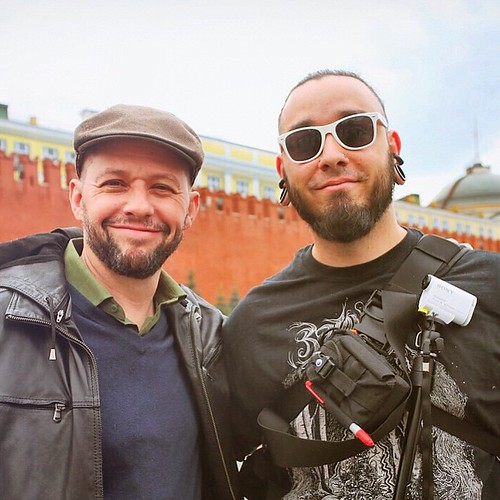
6. **The Financial and Professional Impact on Cryer**During Charlie Sheen’s public meltdown, Jon Cryer, Sheen’s steadfast co-star, found himself in a difficult and precarious position. Sheen has now openly acknowledged the severe professional and personal ramifications his behavior had on Cryer, stating with genuine remorse, “He was in the line of fire with all that stupid s**t going on, and it was affecting him and his family and his career and all that.” This admission is crucial for comprehending the chaos that engulfed “Two and a Half Men.”
As a dedicated and consistent professional, Cryer, playing the neurotic yet endearing Alan Harper, had to navigate a landscape of extreme uncertainty. The very public antics of his colleague placed immense pressure on him, not just to maintain his performance, but to endure the instability surrounding the show’s very existence. While Sheen’s massive $1.8 million per episode salary often overshadowed other narratives, the reality was that the stability of Cryer’s own career, and by extension the financial well-being of his family, was directly jeopardized by Sheen’s unraveling.
The collapse of the show’s original and highly successful dynamic, followed by the unprecedented decision to replace its lead with Ashton Kutcher, undoubtedly placed an enormous burden on Cryer. He was compelled to continue delivering performances amidst a storm of media scrutiny and behind-the-scenes turmoil. His role as consistent anchor during unprecedented change underscored his professionalism and commitment.
Sheen’s recent reflections powerfully underscore his awareness that his personal struggles carried tangible, negative consequences that reverberated far beyond himself. He recognizes that Cryer, whom he described as “super responsible,” was forced to endure a prolonged period of professional turbulence and personal stress. This deep appreciation for what Cryer went through, including the impact on “his family and his career,” highlights the personal cost of the “stupid s***” that transpired and underscores Sheen’s genuine remorse for the disruption he caused.
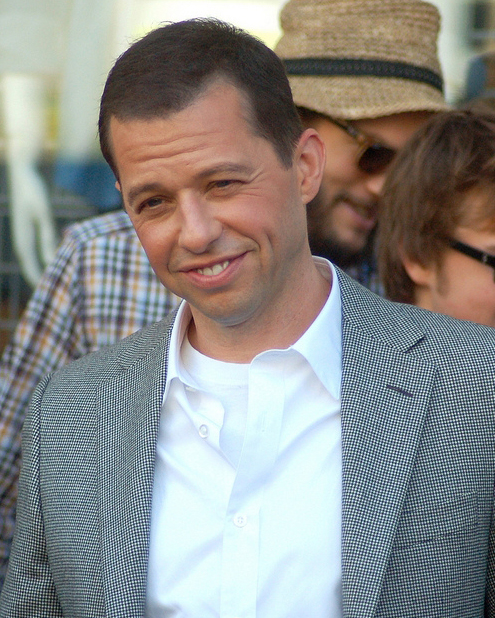
7. **Cryer’s Psychological Insights on Sheen’s Addiction**Beyond the raw emotion of Sheen’s apologies, Jon Cryer’s contribution to the documentary provided a remarkably insightful, almost therapeutic, perspective on the root causes of Sheen’s past struggles. Cryer, with a keen observational eye honed by years of working alongside him, suggested that Sheen’s addiction was fueled by a deep-seated lack of self-belief. This psychological unpacking struck Sheen profoundly, opening a new avenue for his own self-understanding.
Sheen himself confirmed just how impactful Cryer’s observations were. He candidly shared with People, “He nailed that, and I’m so glad he opened that door, because it gave me a chance to really start thinking about that.” Cryer’s assessment that Sheen was “a guy that doesn’t believe he deserves the things he has, or that it was he earned,” resonated deeply. Sheen admitted the revelation hit him with a powerful clarity, making him feel as though he “was on a couch in Jon’s therapy office, and he was dead on.”
This lack of formal training or higher education, despite his meteoric rise to stardom, had always fueled a quiet insecurity within Sheen. He elaborated on this lifelong feeling, explaining, “That’s something that I’ve felt my whole life, because I had no formal training. I had no formal education, I didn’t even finish high school. And suddenly I’m working and traveling, I’m a star and all this stuff.” The rapid ascent, without a clear plan, left him vulnerable to the “voice of doubt” that perpetually whispered it was “only a matter of time before this all goes away.”
Cryer’s ability to articulate this core insecurity provided Sheen with a crucial piece of his own puzzle, fostering an even deeper appreciation for his former co-star. Sheen praised Cryer’s comments as not just “really insightful” but also incredibly “compassionate,” underscoring the sincerity of Cryer’s intent despite their long estrangement. It was a moment of profound recognition, hinting at the complex emotional landscape that underpinned Sheen’s turbulent years.
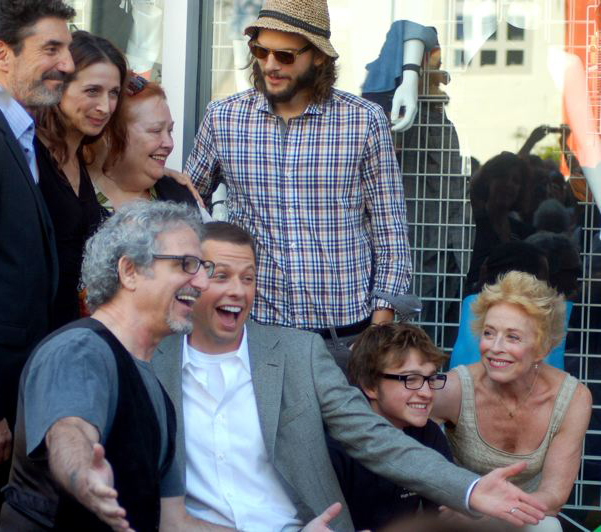
As Sheen releases his memoir and documentary, and as the legacy of “Two and a Half Men” continues to be debated, one thing is clear: this saga, rich with regret, redemption, and a touch of the unexpected, reminds us that even in the brightest spotlights, personal evolution is always a work in progress. It’s a powerful story of confronting the past, embracing the present, and cautiously looking towards a future where old wounds might, finally, begin to heal.


